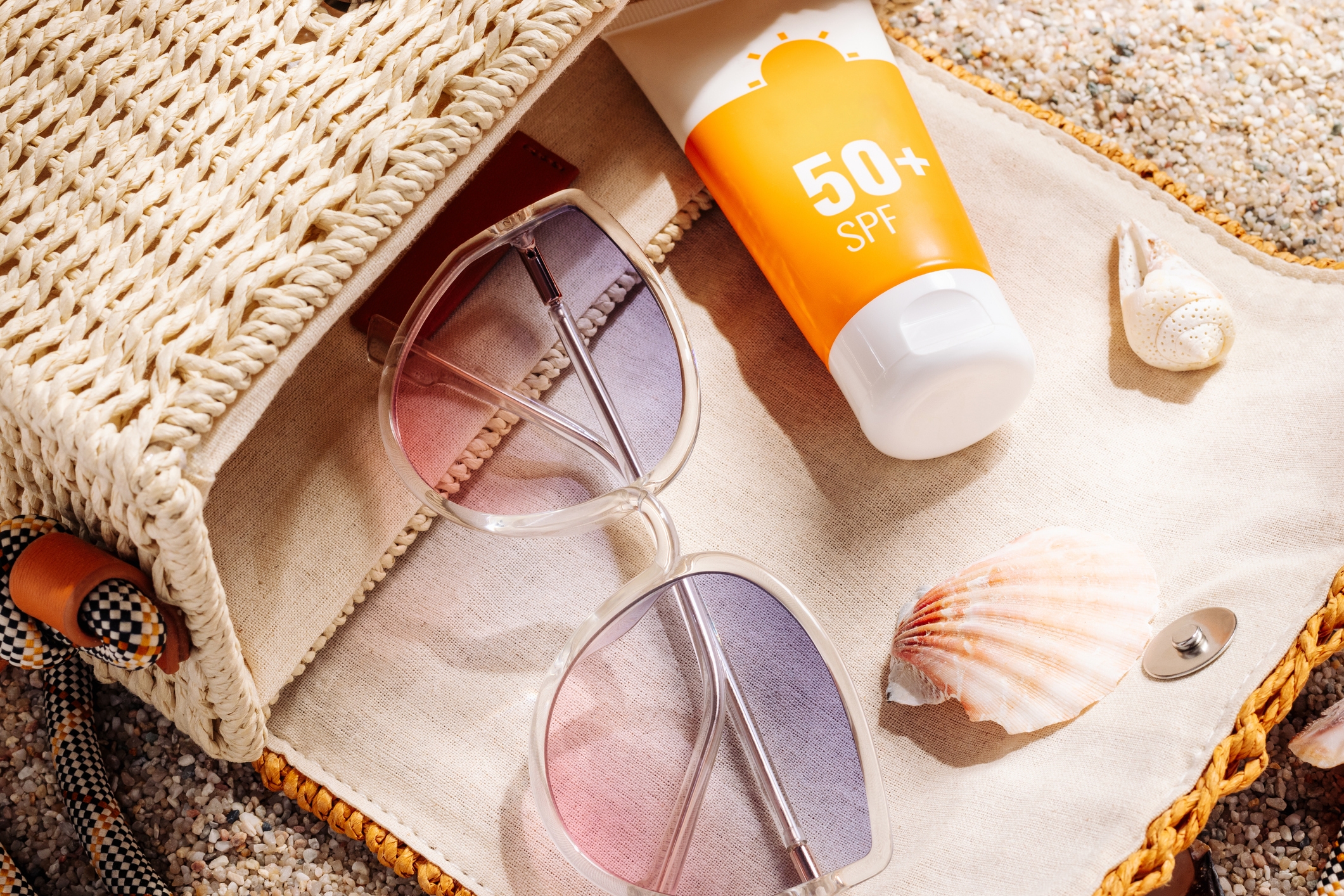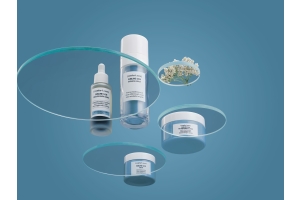Table of Contents
Navigating the realm of skincare, particularly when safeguarding our skin against the sun's relentless rays, requires a blend of science and routine. In this deep dive, we explore the essence of SPF—Sun Protection Factor—and its pivotal role in an anti-aging skincare routine. Delving further into the intricacies of SPF within our daily sun protection regimens unveils a world where protection meets prevention.
What Is SPF?
SPF, or Sun Protection Factor, measures a sunscreen's ability to protect the skin from UVB rays, the type of radiation that causes sunburn and contributes to skin cancer.
Contrary to popular belief, the SPF number does not indicate how many times longer you can stay in the sun without getting burned. Instead, it refers to the amount of UV radiation required to produce sunburn on protected skin versus unprotected skin.
Should You Wear SPF Every Day?
Think SPF is just for sunny beach days? Think again. Even when it's cloudy or you're indoors, UV rays are quietly working overtime, capable of sneaking through clouds and windows to reach your skin.
Making SPF a non-negotiable part of your daily skincare ritual is your best defence against the sneak attacks of premature aging signs like wrinkles and dark spots. More than just preserving your youthful glow, daily SPF application plays a critical role in minimizing your risk of skin cancer. It's an essential step in your skincare routine, rain or shine, ensuring your skin stays protected, healthy, and radiant.
Identifying Which SPF Is Best for You
When selecting the best SPF for your skin, it's essential to consider your skin type, daily exposure, and activity level. Dermatologists typically recommend using a broad-spectrum sunscreen with a Sun Protection Factor of at least 30, which blocks about 97% of UVB rays.
Broad-spectrum or full-spectrum sunscreens protect against both UVB rays, responsible for sunburn, and UVA rays, recognized for their role in aging the skin and increasing cancer risk. SPF on its own does not shield against UVA rays.
The effectiveness of facial sunscreens with various Sun Protection Factor ratings illustrates a trend: higher SPF levels offer increased UV protection, but the incremental advantage decreases as SPF values rise.
To illustrate:
- SPF2 blocks 50% of UV rays
- SPF4 blocks 75% of UV rays
- SPF10 blocks 90% of UV rays
- SPF15 blocks 93.3% of UV rays
- SPF30 blocks 96.7% of UV rays
- SPF50 blocks 98% of UV rays
- SPF70 blocks 98.5% of UV rays
- SPF100 blocks 99% of UV rays
However, no sunscreen can block 100% of the sun's rays, making it necessary to reapply sunscreen every two hours or immediately after swimming or sweating.
Is SPF 30 or 50 Better for Daily Use?
Choosing the correct SPF for daily use can sometimes feel like navigating a labyrinth of numbers. SPF 30 is heralded as generally sufficient for everyday use. It's an excellent baseline for those who spend most of their time indoors or have minimal sun exposure.
Yet, the debate between SPF 30 and SPF 50 for daily use brings a spectrum of considerations to light. For those planning extended outdoor activities, a Sun Protection Factor of 50 steps up as a slightly stronger shield, providing a tad more protection against UVB rays. This can be particularly beneficial for individuals with fair skin or those with a history of skin cancer, offering peace of mind that your skin is well-protected against the sun's relentless energy.
Are SPF 50 and 70 Too Much for Everyday Use?
In addressing whether SPF 50 and 70 are excessive for daily application, it's essential to understand that while these higher SPF values offer increased protection against UVB rays, the actual difference between them is relatively minor.
The leap from SPF 50 to SPF 70 doesn't equate to a proportional increase in protection; instead, it provides a slight enhancement. This small increment, however, shouldn't lead to complacency. A common issue with using higher SPF sunscreens is that people might think they're more protected than they actually are. This overconfidence could lead to not reapplying sunscreen as often as necessary or not applying enough of it in the first place.
Directly answering the question, SPF 50 and 70 are not necessarily "too much" for everyday use, but their effectiveness hinges on proper application. For everyday wear, consistency and adequacy in application are more critical than the SPF number itself. It's vital to apply a generous amount of sunscreen to all exposed skin areas and reapply every two hours or after sweating or swimming to maintain optimal protection. Thus, while higher SPF sunscreens provide a bit more protection, they must be used diligently to truly safeguard the skin from UV damage.
What Is the Highest Sun Protection Factor?
Regarding the highest sun protection factor available, products with SPF values up to 100 can be found on the shelves. However, as mentioned previously, higher SPF numbers offer marginally increased protection. The emphasis should always be on selecting broad-spectrum sunscreens that protect against UVA (aging rays) and UVB (burning rays) and ensure consistent application throughout the day.
Is a Daily Moisturizer With SPF Efficient?
Incorporating a moisturizer with SPF into your daily skincare routine effectively ensures consistent sun protection. The best everyday SPF product is one that you're willing to use regularly. Look for a moisturizer with SPF 30 or higher for daily use to hydrate your skin while protecting it from UV damage. It's ideal for those looking to streamline their skincare routine without compromising sun protection.
Moreover, the integration of SPF into face moisturizers has evolved, with formulas now catering to a wide array of skin concerns and preferences. From lightweight lotions for oily skin to richer creams for those battling dryness and fragrance-free products for sensitive skin, there's an SPF-infused moisturizer for everyone. This advancement underscores the skincare industry's commitment to providing comprehensive solutions that address our skin's multifaceted needs while emphasizing the importance of sun protection in our daily lives.
Diving into the world of SPF and its critical role in our skincare routines offers enlightening insights into safeguarding our skin's health and vitality. Whether your daily adventures are bathed in sunlight or filtered through office windows, adopting SPF into your skincare routine is a profound act of self-care that significantly contributes to preserving your skin’s youthful glow. By incorporating a moisturizer with SPF into your routine, you're not just nurturing your skin – you're fortifying it against the relentless march of time and environmental factors it encounters.
As we unravel the mysteries of effective skincare, let's remember that our skin's health reflects our understanding and commitment to its care. In its scientific glory and daily necessity, SPF stands as a testament to our ability to protect and cherish our skin, ensuring its story is one of resilience and enduring beauty.






